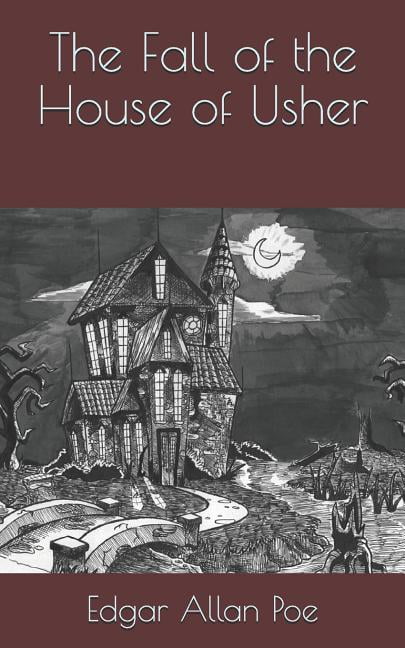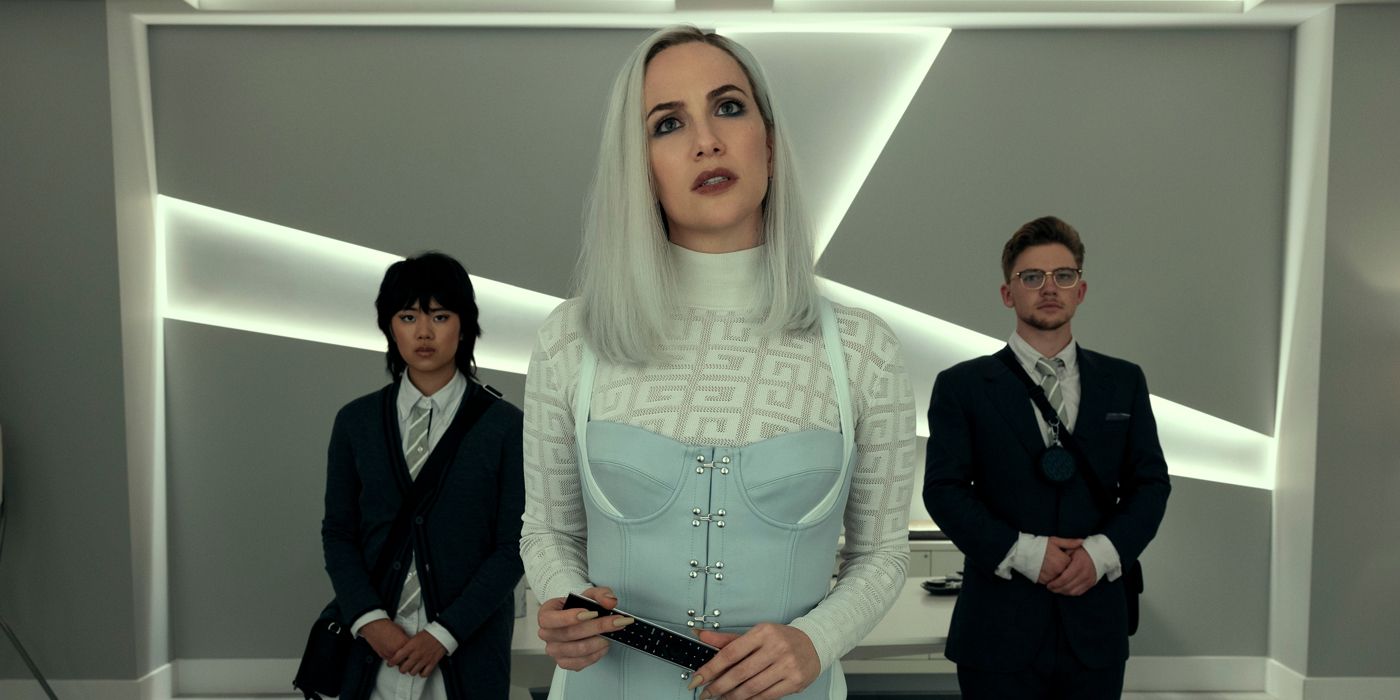Table Of Content

The Fall of the House of Usher is an American gothic horror drama television miniseries created by Mike Flanagan. All eight episodes were released on Netflix on October 12, 2023, each directed by either Flanagan or Michael Fimognari, with the latter also acting as cinematographer for the entire series. Several days later, Roderick tells the narrator that Madeline has died, and they lay her to rest in a vault. In the days that follow, the narrator starts to feel more uneasy in the house, and attributes his nervousness to the gloomy furniture in the room where he sleeps. His sister’s illness is only one reason for Roderick’s agitation, one reasonfor his desire to have the “solace” of the narrator’s companionship; it is notthe only—or most significant—reason. Usher himself is suffering from a “mentaldisorder,” which is “a constitutional and .
More Must-Reads From TIME
He believes the mansion is sentient and responsible, in part, for his deteriorating mental health and melancholy. Despite this admission, Usher remains in the mansion and composes art containing the Usher mansion or similar haunted mansions. His mental health deteriorates faster as he begins to hear Madeline's attempts to escape the underground vault she was buried in, and he eventually meets his death out of fear in a manner similar to the House of Usher's cracking and sinking.
What deal did the Ushers make with Verna?
Roderick decides to keep his sister preserved in ahouse vault before moving her to the isolated family cemetery. He soon abandonshis former hobbies, and the narrator observes that Roderick is beginning tolose his mind. While watching his friend’s condition deteriorate, the narratorfeels himself slip into madness as well. The story opens with the narrator riding alone on a cloudy autumn day to theHouse of Usher. He describes a childhood friendship with the owner, Roderick Usher.Roderick had requested the narrator’s company during his convalescence from anillness. The narrator reflects on the once-great Usher family and that theyhave only one surviving direct line of descendants, comparing the beautiful butcrumbling house to the family living inside.
The Fall of the House of Usher review – a gleefully terrifying take on Edgar Allan Poe
Poe condenses these into a short story and plays around with them, locating new psychological depths within these features. Inshort, the narrator assists his host in entombing the body temporarily in,first, a coffin with its lid screwed down, and then in a vault behind a massiveiron door of profound weight. There she remains for a week, as Roderick roamsthrough his house aimlessly, or sits and stares vacantly at nothing for longhours. Summoned to the House of Usher by a “wildly importunate letter,” which “gaveevidence of nervous agitation,” the first-person narrator goes to reside for atime with the writer of this letter, Roderick Usher.
The storm intensifies, and objects in theroom glow with unnatural light from the mist that surrounds the mansion. Usher moves hischair to face the door, murmuring under his breath while the narrator reads tohim. The narrator comes to the scene in which the hero forces his way into thehome of a hermit and finds a dragon that he eventually slays with a mace.
thought on “A Summary and Analysis of Edgar Allan Poe’s ‘The Fall of the House of Usher’”
One wonders, until one recallsthat, in the third paragraph of this story, even before Roderick has been seenfor the first time, the narrator mentions that the ancient “stem” of the Usherfamily never “put forth . So lain.” In other words,Roderick and Madeline Usher are the products and inheritors of an incestuousfamily lineage—one that has remained predominantly patrilineal, so that thename of the family always remained Usher. The narrator and Roderick place her in a tomb despite her flushed, lively appearance. In the tale's conclusion, Madeline escapes from the tomb and returns to Roderick, scaring him to death. From his arrival, the narrator notes the family's isolationist tendencies, as well as the cryptic and special connection between Madeline and Roderick, the final living members of the Usher family. Throughout the tale and her varying states of consciousness, Madeline completely ignores the narrator's presence.

As Roderick nears the conclusion of his story, which jumps back and forth between his early years working at Fortunato and the events that led up to each of his children's deaths, he finally arrives at the fateful night that changed everything, New Year's Eve of 1979. It turns out that almost every branch of the Usher family tree has been cut by violent horror. ” “No, not before,” he replies in one of the show’s many glimpses of Flanagan’s viciously dark sense of humor. (Poe had one too.) Roderick has been haunted by all his awful children who have shuffled off this mortal coil, and it’s because it feels like the ghosts are finally coming for him that he is ready to confess. He’s having visions of monstrous ghosts, including the recurring specter of Verna (Carla Gugino), a figure that connects most of these tall tales as a sort of vengeful force of karma, the devil come to take what she’s due from a man who profited off the pain of others. No one mentions Madeline, and Roderick spends his time painting, playingmusic, reading, and writing.
Roderick has come from a miserable childhood with a puritanical, sickly mother who believes that “pain and suffering are the kiss of Jesus”. As a parent himself, Roderick doesn’t fare much better, having six children by five different women who range from obnoxious hedonists (Napoleon and Prospero Usher) to despicable creeps (Frederick, Tamerlane and Victoria) to obnoxious, despicable hedonist creeps (Camille). The family is made up of Flanagan’s regular ensemble of actors, and to buy them as relatives requires a lot of suspension of disbelief, but for Flanagan fans, there’s great fun to be had seeing how these favourites fit into his new tale of terror. Ruth Codd (the highlight of The Midnight Club) plays Roderick’s much younger wife Juno, a former heroin addict whose life was turned around thanks to the drugs the Ushers peddle, while Rahul Kohli, Henry Thomas and Kate Siegel each take on a dastardly member of the Usher brood. Alongside his favoured players is Mark Hamill as an unfeeling lawyer/fixer for the Usher family who sounds as if he gargles a pint of nails every morning. But as we know from the start, there’s no point in getting overly attached to them, as grisly fates are assured for all.
Guilt permeates every frame of Flanagan’s Poe universe, and buys into not so much the horror as the terror. Contemporary readers and critics interpreted the story as a somewhat sensationalized account of Poe’s supposed madness. (As a recluse, Poe often invited such accusations.) Later scholarship pursued alternative interpretations. Some scholars speculated that Poe may have attached special importance to the fact that Roderick and Madeline are twins, noting that Poe previously investigated the phenomenon of the double in “Morella” (1835) and “William Wilson” (1839). Other scholars pointed to the work as an embodiment of Poe’s doctrine of l’art pour l’art (“art for art’s sake”), which held that art needs no moral, political, or didactic justification.
Poe was often dismissed by contemporary literary critics because of the unusual content and brevity of his stories. When his work was critically evaluated, it was condemned for its tendencies toward Romanticism. The writers and critics of Poe’s day rejected many of that movement’s core tenets, including its emphasis on the emotions and the experience of the sublime.
However, it's an incredibly easy show to enjoy on an episode-by-episode basis, largely because Flanagan’s direction is sharp throughout, including excellent use of music and tight editing—some scenes are too underlit, but that’s just the Netflix brand nowadays, and I’m done fighting it. Inspired by the work of Edgar Allan Poe, House of Usher traces the downfall of the uber-wealthy Usher family and their corrupt drug company, Fortunato Pharmaceuticals. The story centers on Usher family patriarch and Fortunato CEO Roderick (Bruce Greenwood), who, as the show begins, calls up his longtime rival, assistant U.S. attorney C. From the start of the first episode of The Fall of the House of Usher, we know that all of Roderick Usher's children are dead. It's the how and the why of their deaths that plays out over the course of Mike Flanagan's new horror anthology series, now streaming on Netflix.
Roderick Usher is a gifted poet and artist, whose talents the narrator praises before sharing a poem Usher wrote, titled ‘The Haunted Palace’. The ballad concerns a royal palace which was once filled with joy and song, until ‘evil things’ attacked the king’s palace and made it a desolate shadow of what it once was. After looking at the reflection of the mansion in the tarn, or small lake,in front of the estate, the narrator believes he sees a heavy mist and vaporrising from the trees and house. He then takes a closer look at the ancientmansion and sees a crack zigzagging from the roof to the foundation, where itdisappears into the tarn’s shore.
Every hidden Poe reference in 'Fall of the House of Usher' - Mashable
Every hidden Poe reference in 'Fall of the House of Usher'.
Posted: Fri, 13 Oct 2023 07:00:00 GMT [source]
As he relates the shield falling from off the wall, a hollow metallic reverberation can be heard throughout the house. At first, the narrator ignores the noises, but Roderick becomes increasingly hysterical. Roderick eventually declares that he has been hearing these sounds for days, and that they are being made by his sister, who was in fact alive when she was entombed.
The Haunting Ending of 'The Fall of the House of Usher,' Explained - Men's Health
The Haunting Ending of 'The Fall of the House of Usher,' Explained.
Posted: Mon, 16 Oct 2023 07:00:00 GMT [source]
It’s “Succession” meets The Tell-Tale Heart, a story of vengeance, power, betrayal, and bloody parts. The overarching narrative of The Fall of the House of Usher loosely follows Poe's 1839 short story of the same name, with Roderick recounting his decades-spanning tale to Auggie inside his decrepit childhood home. ‘The Fall of the House of Usher’ is an 1839 short story by Edgar Allan Poe ( ), a pioneer of the short story and a writer who arguably unleashed the full psychological potential of the Gothic horror genre. The story concerns the narrator’s visit to a strange mansion owned by his childhood friend, who is behaving increasingly oddly as he and his twin sister dwell within the ‘melancholy’ atmosphere of the house.
Presenting vintage Poe stories filtered through Mike Flanagan's deliciously dark lens, The Fall of the House of Usher will get a rise out of horror fans. “It’s batshit crazy in the best possible way,” Carla Gugino told Netflix during production. “It has quite a lot of very dark humor, but also really touches the soul.” In the series, Gugino portrays a shape-shifter named Verna, whose origins can be traced back to a — let’s just say — very famous Poe character. “There is a fantastical supernatural element to the story, and she is the manifestation of that,” she added.

No comments:
Post a Comment